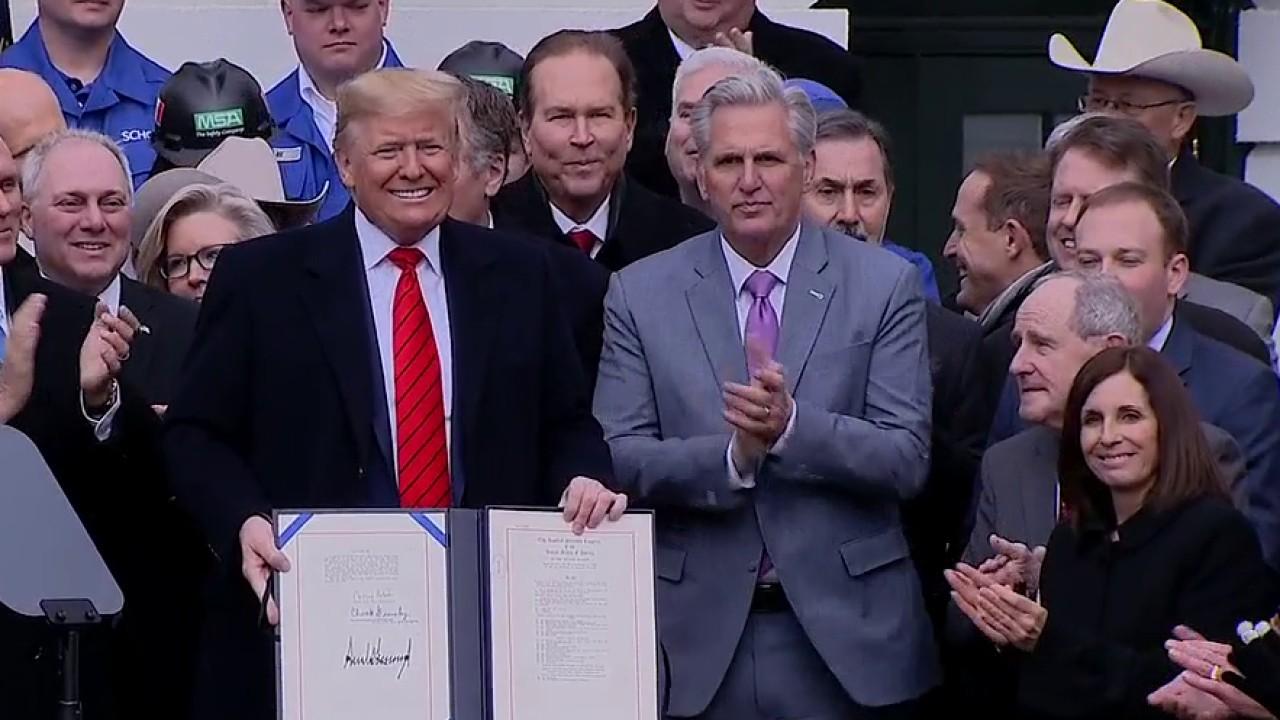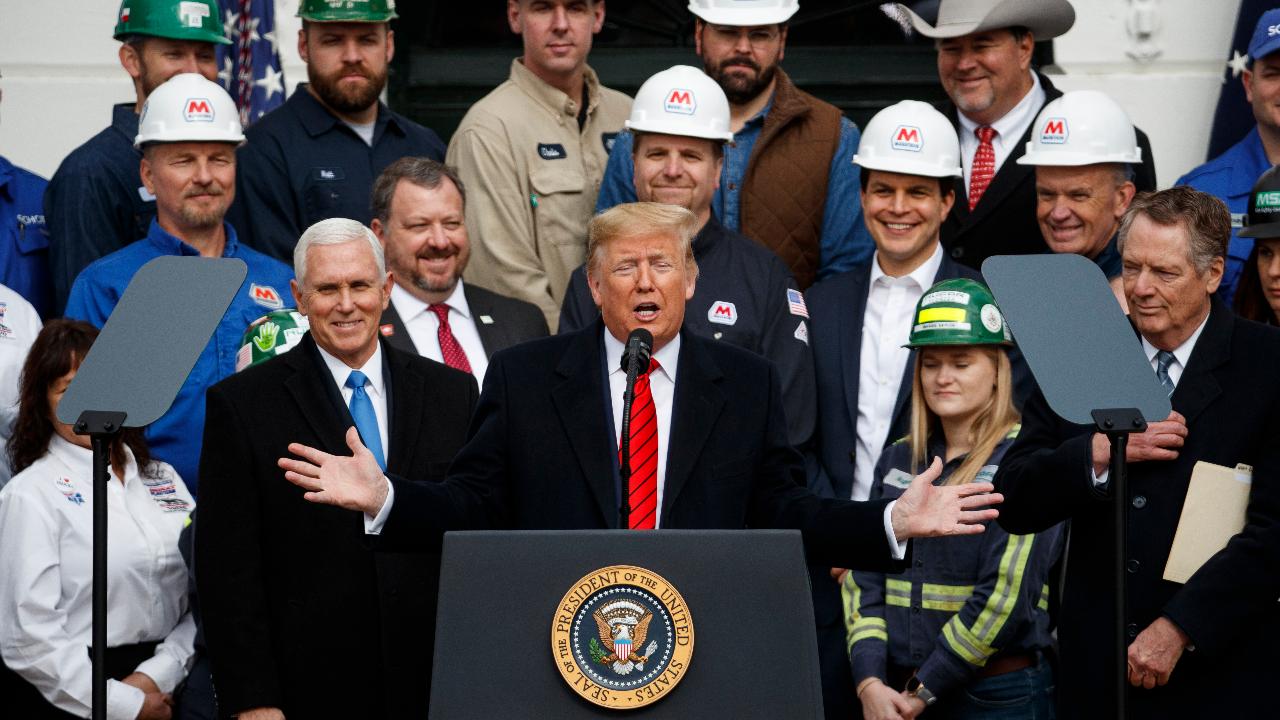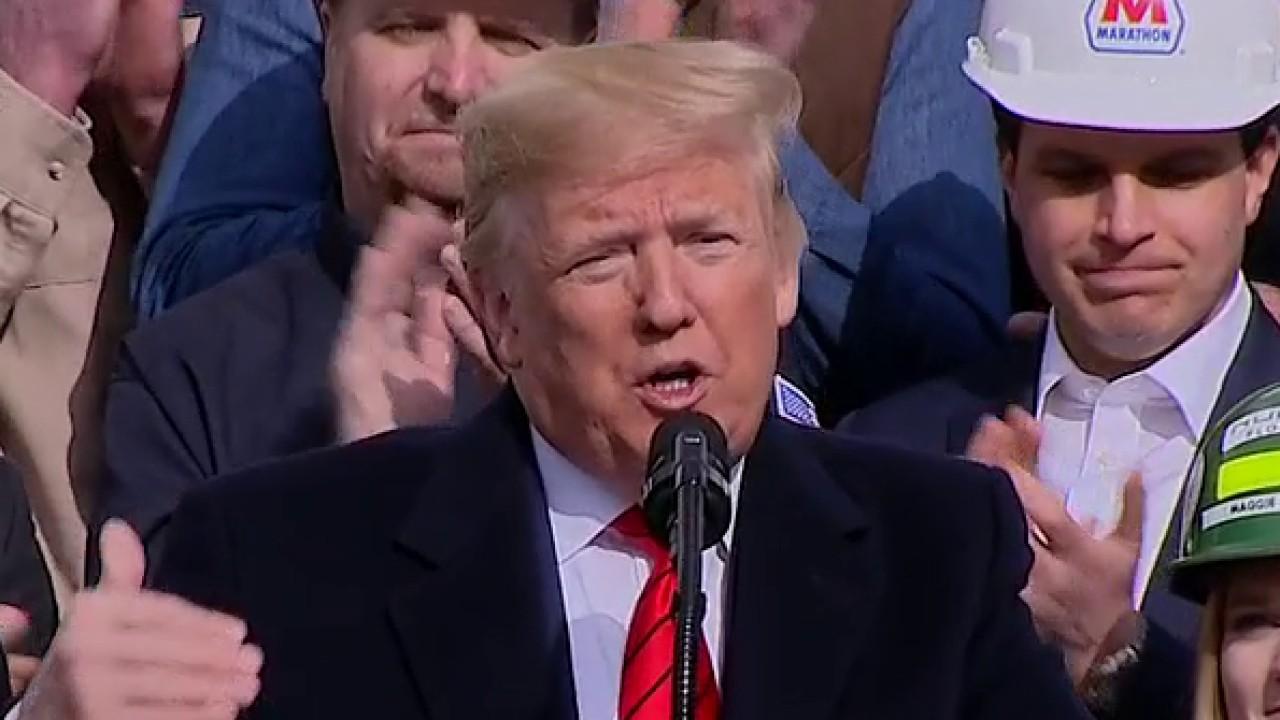Christian Whiton: Trump's USMCA is not just biggest deal ever—it's an international game changer
The deal is an unequivocal win for America and will help Canada and Mexico over the long run
As a candidate, Donald Trump called NAFTA the “worst trade deal ever” and vowed its replacement. On Wednesday, he fulfilled that promise, signing the new USMCA trade pact covering North America.
The deal is Trump’s biggest yet—in fact the biggest in history. It covers $1.4 trillion in annual U.S. trade volume—nearly twice as much as the recent deal with China. And most important, it covers nearly four times as much in U.S. exports: some $663 billion in exported goods and services, which will grow as a result of the deal.
TRUMP SIGNS USMCA, PAVING WAY FOR JOB MARKET BOOM
Trump’s achievement won overwhelming support from Republicans and Democrats in an otherwise divided Congress.
The deal is an unequivocal win for America and will help Canada and Mexico over the long run. It puts an end to unfair Canadian tariffs that amounted to nearly 300 percent in some cases, thus creating a level playing field for American farmers and ranchers.
It requires Mexico to increase wages for automotive and related manufacturing jobs which removes incentives for exporting U.S. jobs and sneaking around environmental standards.
By limiting the ability of foreigners to circumvent U.S. courts in resolving disputes, the pact restores fairness and the U.S. sovereignty that was lost under NAFTA.
USMCA IS 'GOLD STANDARD FOR DIGITAL TRADE': TRADE CHIEF ROBERT LIGHTHIZER
For disputes between governments, it creates a resolution mechanism separate from the failed World Trade Organization.
USMCA also creates a new standard for protecting intellectual property and digital trade, which is likely to be included in other trade deals. That means fairness for high-growth industries in which America leads.
But the sum of the deal is worth even more than these parts. Enactment of the USMCA will mark a fundamental shift in the world order that is only starting to become apparent.
GET FOX BUSINESS ON THE GO BY CLICKING HERE
Many countries are getting wise to the consequences of phony “free trade” with China that has been the darling of globalists for the past two decades.
That type of trade was only free for Beijing, which stole foreigners’ capital, jobs, and intellectual property in return for the promise of access to China’s markets. Now that promise has been exposed as a mirage and China’s corrupt economy is sputtering.
Far more important are trade pacts like USMCA among countries with similar economies and the rule of law. That is why Trump has also negotiated trade deals with Japan and South Korea.
Hopefully, he will order negotiations to begin with Taiwan, which has the rule of law, and wants to buy more energy and other products from the U.S. (and is already a big purchaser of U.S. weapons). With this arrangement, America would be the linchpin of a massive trading bloc of free nations around the North Pacific—the most economically important part of the new world that is emerging.
(Freeloading Great Britain wants a trade deal but won’t even accept U.S. requests to wean itself off Chinese technology and spyware in its telecom system. It doesn’t deserve a deal.)
When combined with the economic renaissance Trump has engineered at home, historians will look back at the enactment of USMCA as an inflection point after which America and its partners left China, Europe, and other statist economies in the dust.
Christian Whiton was a senior advisor in the Donald Trump and George W. Bush administrations. He is a senior fellow for strategy and public diplomacy at the Center for the National Interest and the author of “Smart Power: Between Diplomacy and War.”






















